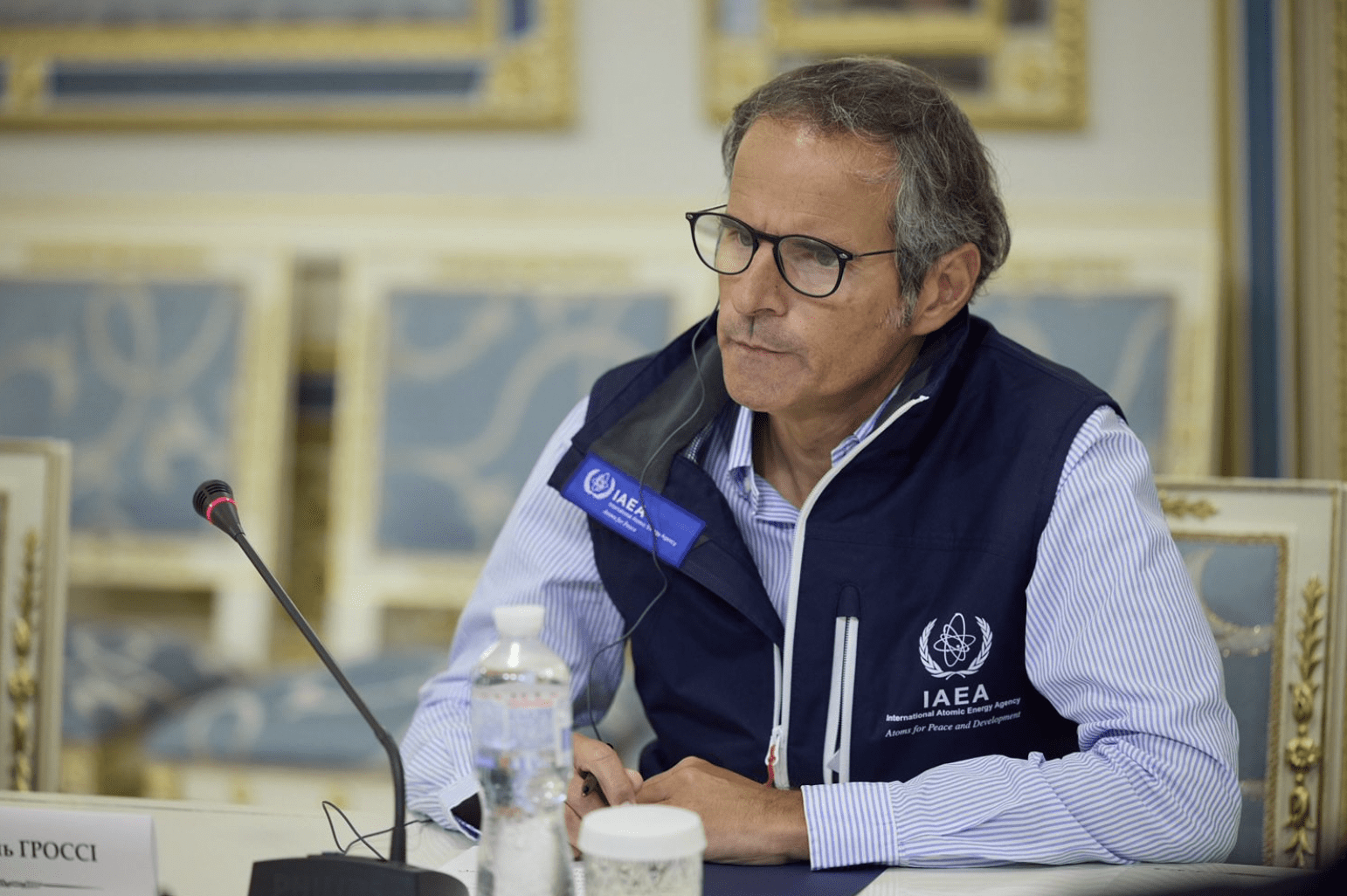
UN inspectors are expected to reach the Zaporizhzhia nuclear power plant today, September 1st. The 14-strong team is there on a mission to prevent “a nuclear accident” from taking place, the International Atomic Energy Agency chief said on Wednesday. Their arrival, however, has been temporarily delayed due to shelling in the area, as Reuters reports.
According to an Agence France Presse report, Rafael Grossi and his IAEA team arrived in the city of Zaporizhzhia around 1100 GMT. There they stay for the night, before traveling to the plant itself, where they will conduct an inspection.
#UPDATE UN inspectors en route to the Russian-held #Zaporizhzhia power plant on the frontline of fighting in southern Ukraine are aiming to prevent "a nuclear accident", the IAEA chief Rafael Grossi said on Wednesday https://t.co/9l3n1sxjnO pic.twitter.com/Uws2lFuM1A
— AFP News Agency (@AFP) August 31, 2022
Their mission may last “a few days,” Grossi told reporters at the hotel he and his team are staying. “If we are able to establish a permanent presence, or a continued presence, then it’s going to be prolonged,” he added.
Grossi went on to say that they “have a very important task there to perform—to assess the real situation there, to help stabilize the situation as much as we can,” and that they had had cease-fire guarantees from both Russia and Ukraine, enabling them to safely enter an active war zone.
On August 29th, the IAEA’s mission left Vienna, arriving in Kyiv on the 30th, where the delegation met with Ukrainian President Vladimir Zelensky.
The day has come, @IAEAorg's Support and Assistance Mission to #Zaporizhzhya (ISAMZ) is now on its way. We must protect the safety and security of #Ukraine’s and Europe’s biggest nuclear facility. Proud to lead this mission which will be in #ZNPP later this week. pic.twitter.com/tyVY7l4SrM
— Rafael MarianoGrossi (@rafaelmgrossi) August 29, 2022
Later that day, the Ukrainian leader warned that “the risk of a radiation disaster due to Russian actions does not decrease for an hour.” The Russian defense ministry however has ensured radiation levels at the plant are normal.
The Russian-held plant in Ukraine’s south, which has been under the Kremlin’s control since March, has been enduring shelling for weeks now; both Kyiv and Moscow refuse to take responsibility, instead resorting to accusing the other party of bearing guilt for endangering the plant—the largest in Europe.
According to Kyiv, Russia uses the plant as a convenient shield from which to conduct missile strikes, knowing Ukrainian forces might shirk at returning fire. It has also accused Russian forces of shelling the plant.
These assertions Moscow has denied, questioning why it would do so, as it has its own troops garrisoned there. Moscow instead holds the theory that Ukrainian shelling is meant to draw in outside intervention, which Kyiv hopes will achieve that zone’s demilitarization, and thus create breathing space for Ukrainian forces.
Ukrainian Energy Minister, German Galuschenko, is glad for the inspection, saying it would be a step towards “deoccupying and demilitarising” the site. In this, it is supported by the U.S., which, in addition, has called for the plant’s complete shutdown. Yet, although Russia remains steadfast in its refusal to accede to such demands, it says it welcomes the IAEA’s intention to set up a permanent mission there.
On the ground, however, Yevgeny Balitsky, head of the area’s Russian-installed administration, has said that the IAEA inspectors must complete their work in one day. On Wednesday, Ukraine’s armed forces yet again accused Russia of shelling a contact line in the area and of preparing an offensive there. There was no immediate comment from Moscow.
The current state of affairs still greatly alarms the international community, which fears a repeat of the 1986 Chernobyl disaster.
Starting on August 25th, for a few days, the plant was disconnected from the power grid. Energoatom said it was due to fires at a nearby thermal power plant which caused the nuclear plant’s last remaining electricity power line to disconnect twice. The plant had already lost its three other lines. As a backup, the plant has diesel generators installed which supply power to cooling pumps to stop fuel from overheating in the event of an electricity blackout.
Commenting on the matter, Ukrainian President Volodymyr Zelensky said that if these generators “hadn’t turned on, if the automation and our staff of the plant had not reacted after the blackout, then we would already be forced to overcome the consequences of the radiation accident.”
Anticipating further escalation, the EU said on Tuesday it would be providing iodine tablets as a “preventative safety measure” to help protect the people still living in the area. Five million pills will come from its emergency reserves, with another 500,000 from Austria.
